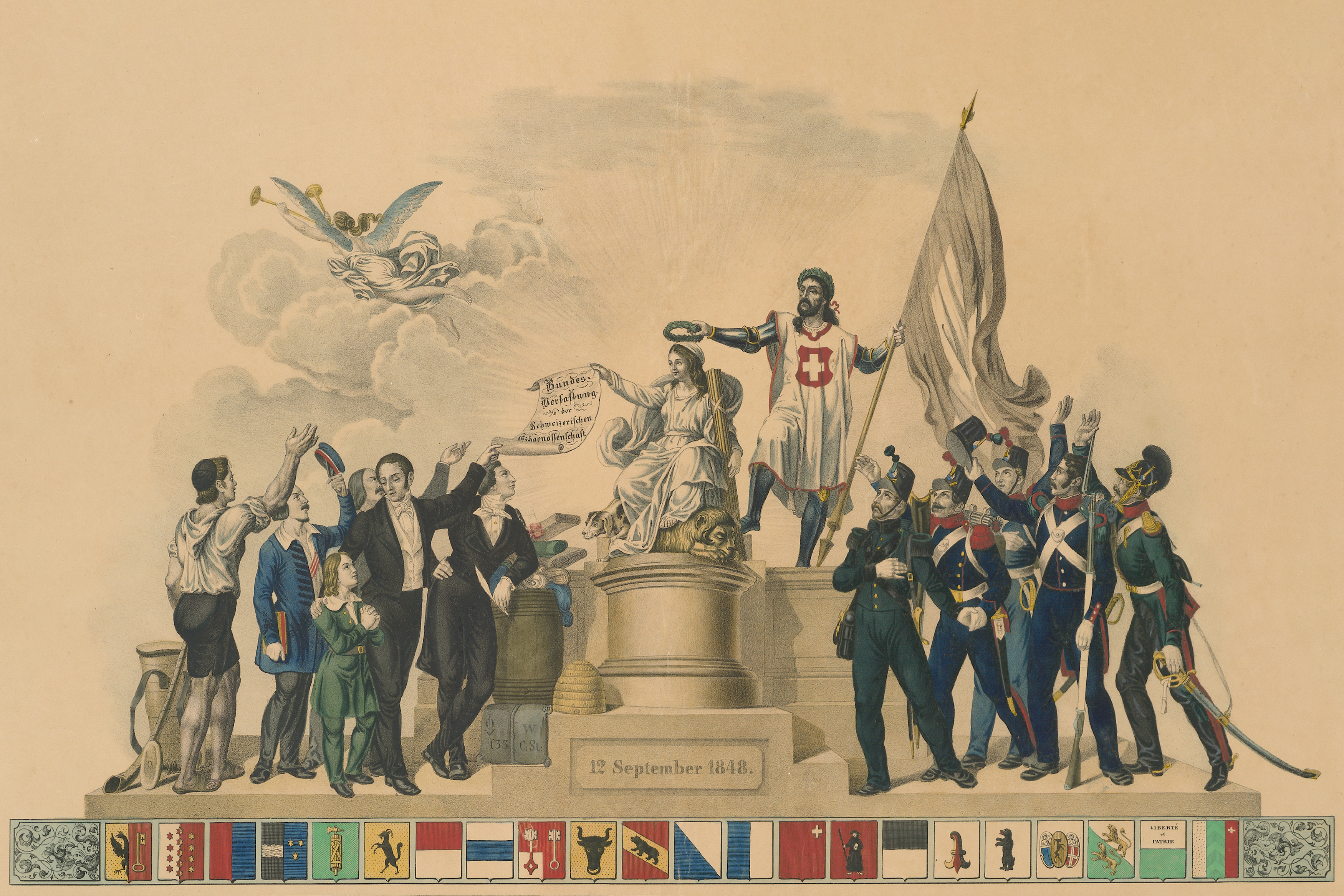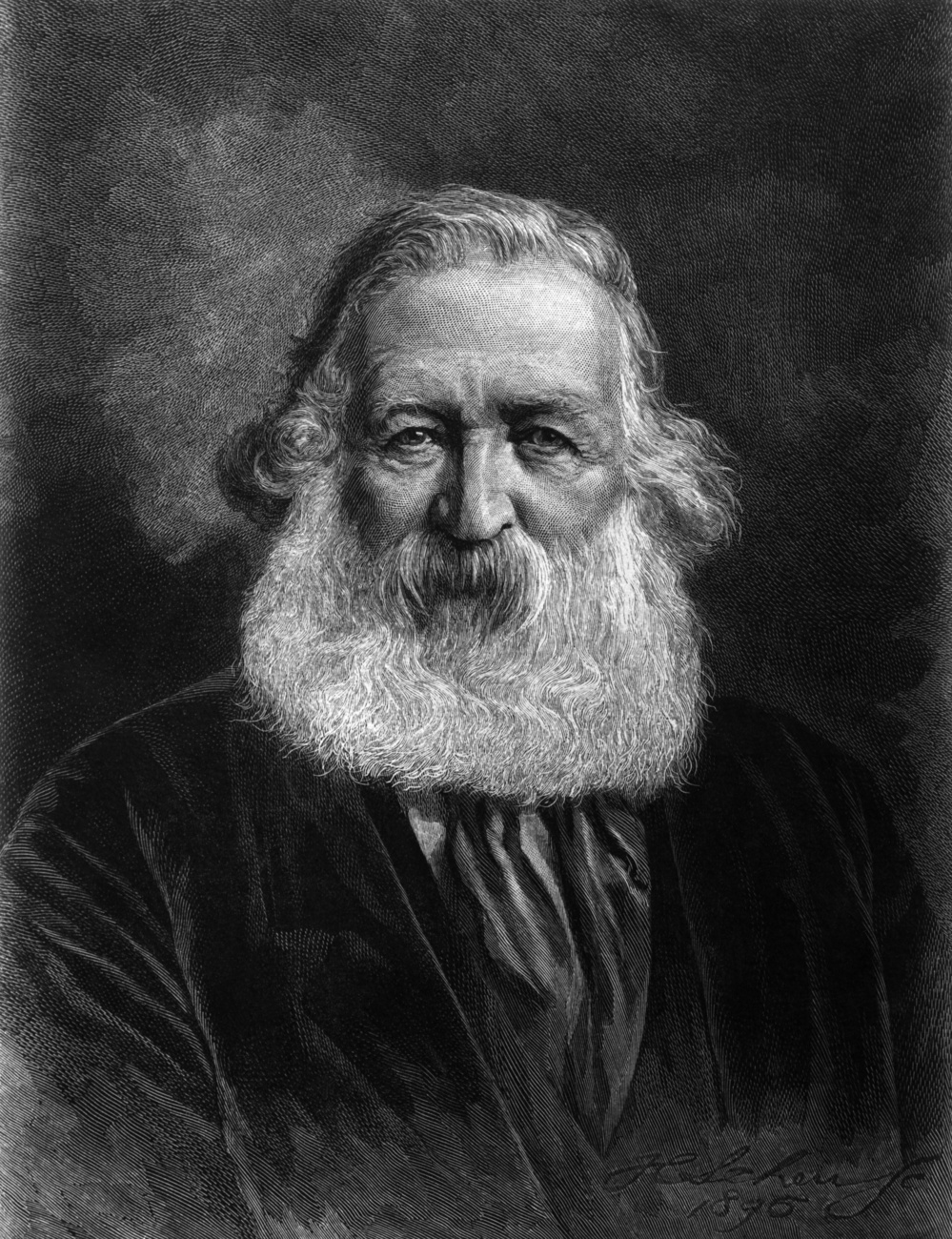How centuries of Swiss emigrants left their mark on the US
Daring to start afresh on the other side of the Atlantic – emigration is part of the history of many families in Switzerland and the US.
Years ago, the freshly-arrived Swiss didn’t just find a new life – often they found a new name. The Tschudi family became the Tshudy family, Gnägi morphed into Kornegay, and the Künzlis became the Kinsaws or Kinseys.
According to estimates, around 460,000 Swiss emigrated to the US between 1700 and 2000.
The very first Swiss-Americans
The first Swiss known to have travelled to what would later become the United States did not survive long in the New World. In 1564, Diebold von Erlach was an officer on a French colonial expedition to what is now Florida.

More
Five events that shaped contemporary Swiss-American relations
There, von Erlach intervened in conflicts between rival indigenous tribes. In 1565, he died in unexplained circumstances in a fight between Spanish and French colonisers.
Like von Erlach, the first Swiss-Americans were often in French or British pay as soldiers, settlers or labourers. But many religiously persecuted, such as Anabaptists, also settled in the colonies. Some “Switzers” fell for the empty promises of emigration companies – before meeting a situation of bitter poverty.

More
Sister republics: what the US and Switzerland have in common
However, some were able to leave their mark. Plantation and slave owner Johannes Tobler, for example, saw success from 1752 by producing the first calendar in what would later become the Confederate States – the “South Carolina Almanack”.
Gunsmith Martin Meili (who became ‘Mylin’) is meanwhile considered the inventor of the “Pennsylvania Rifle”, an important weapon in the War of Independence.
A Swiss-American Treasury Secretary
The most influential emigrant was probably Albert Gallatin, who left for the US after studying in Geneva. Gallatin, a staunch opponent of slavery, entered politics after gaining US citizenship in 1785; he served as US Secretary of the Treasury from 1801 to 1814.
More
In the nascent US following the Revolutionary War, however, Swiss citizens were not always recognised as such. Because of their language, they were wrongly classified as German or French.
Nevertheless, according to the 1790 census, around 3% of all heads of family in the US were Swiss.
As early as 1710, Swiss emigrants founded the town of New Bern in North Carolina, where Pepsi Cola would later be invented.
In the 19th century, a disproportionate number of Swiss settled in the Midwest – where they founded communities such as New Glarus, Tell City and Vevay – and later in the Pacific states of California, Oregon and Washington.
The proportion of Swiss nationals who built a new life in the American South remained remarkably low.
‘Deporting’ undesirables
Emigration in the 19th century was driven by poverty. In the mid-19th century, according to the Historical Dictionary of Switzerland, the US authorities “frequently complained about the Swiss practice of ‘deporting’ undesirable people”.
This criticism by authorities was replaced by a more benign attitude towards the end of the century; immigrants from Switzerland were no longer all poor.
The Swiss founded associations and newspapers, some of which developed long traditions: the Swiss American Newspaper, initially called Der Grütlianer, was published between 1868 and 1999.
Year after year, many Swiss continued to emigrate to the US, at least until the Great Depression. Since the Second World War, the nature of the movement has changed: often now emigration is only temporary.
The most famous Swiss-American woman
Among those who remained in the US is possibly the most famous Swiss-American: psychiatrist Elisabeth Kübler-Ross, who died in Arizona in 2004. Kübler-Ross, who developed the famous model of the five stages of grief, left her native city of Zurich in 1958.
The Swiss community in the US is still the largest outside Europe: 83,667 Swiss nationals were living in the US in 2023. The majority also hold a US passport.
Edited by David Eugster. Translated from German by DeepL/dos
















You can find an overview of ongoing debates with our journalists here . Please join us!
If you want to start a conversation about a topic raised in this article or want to report factual errors, email us at english@swissinfo.ch.